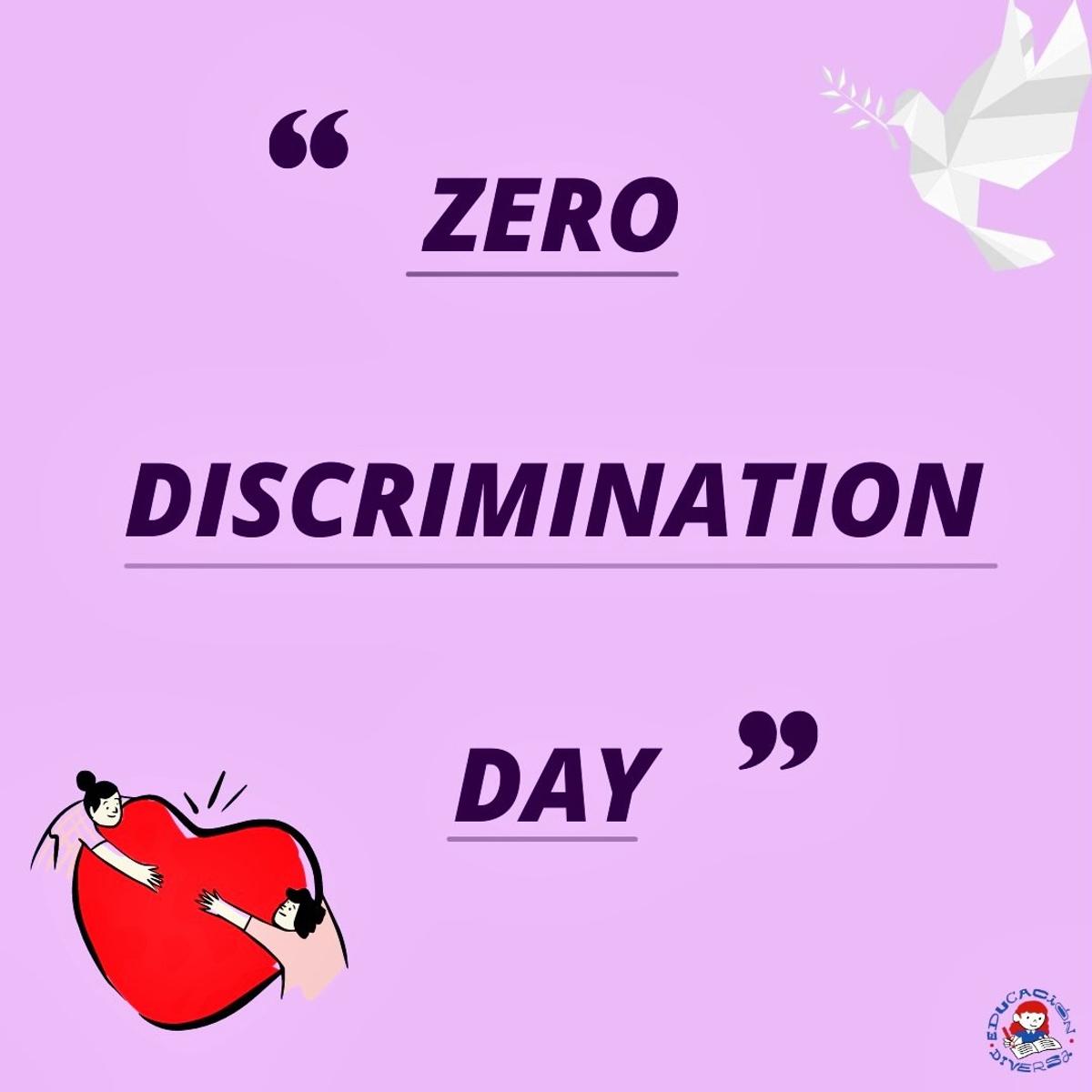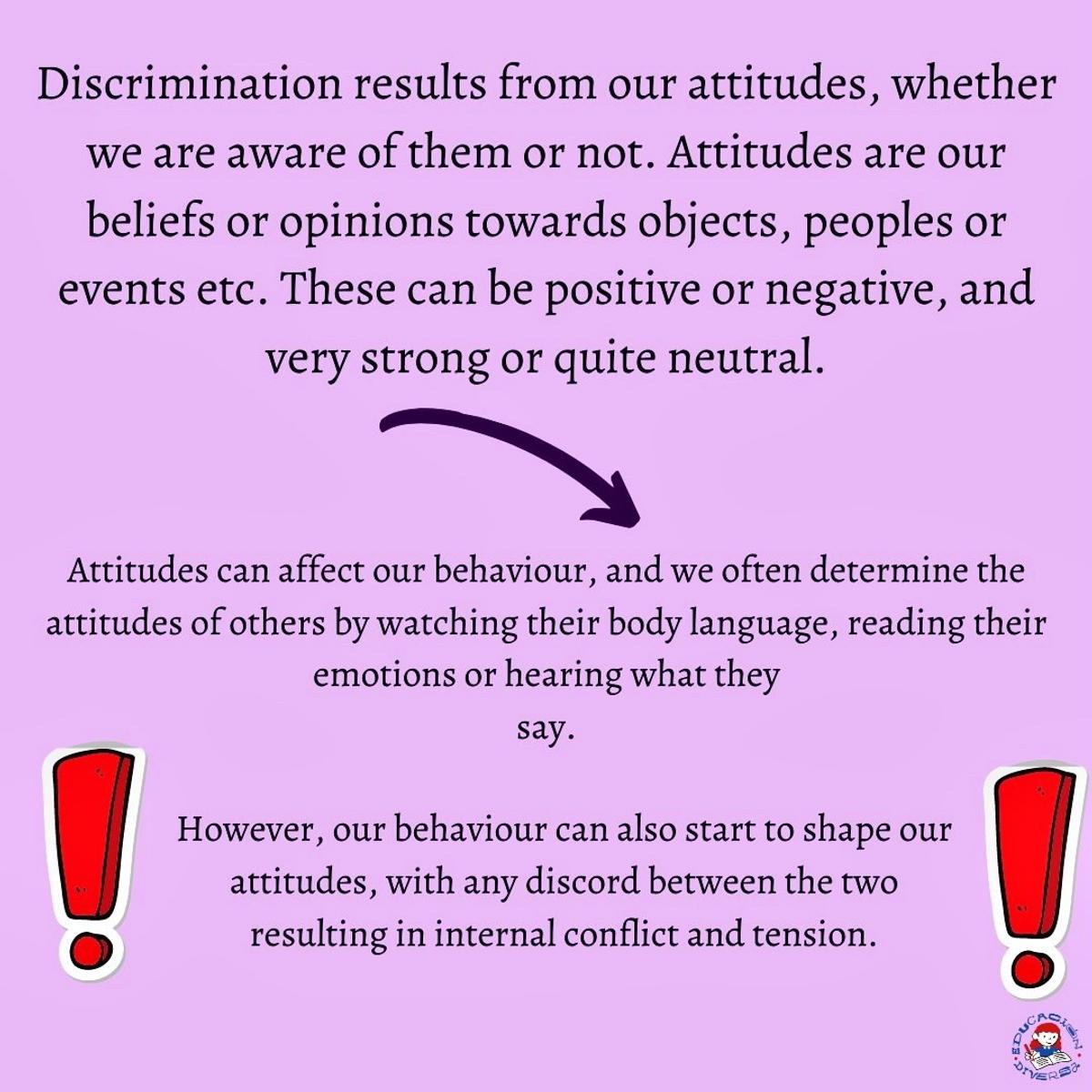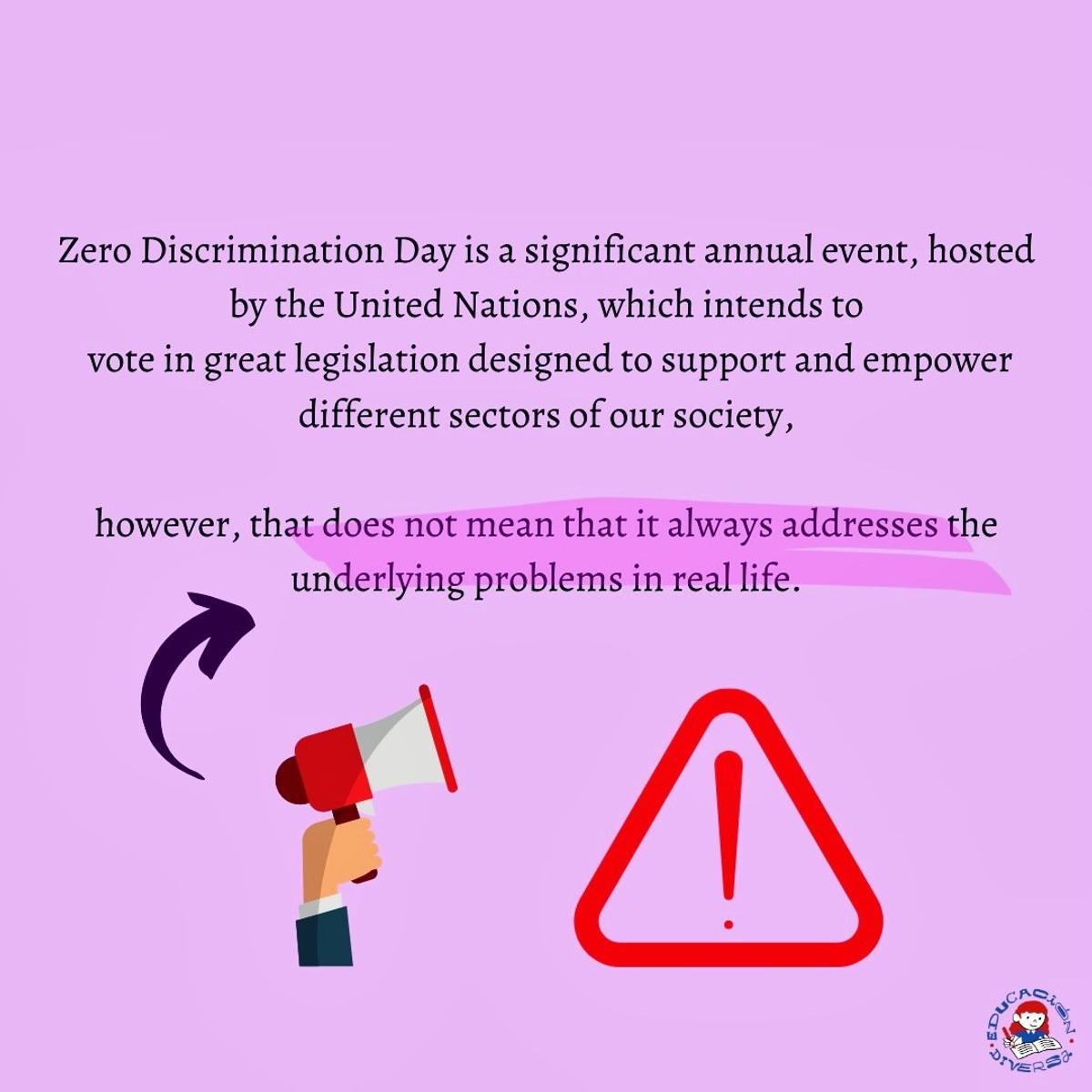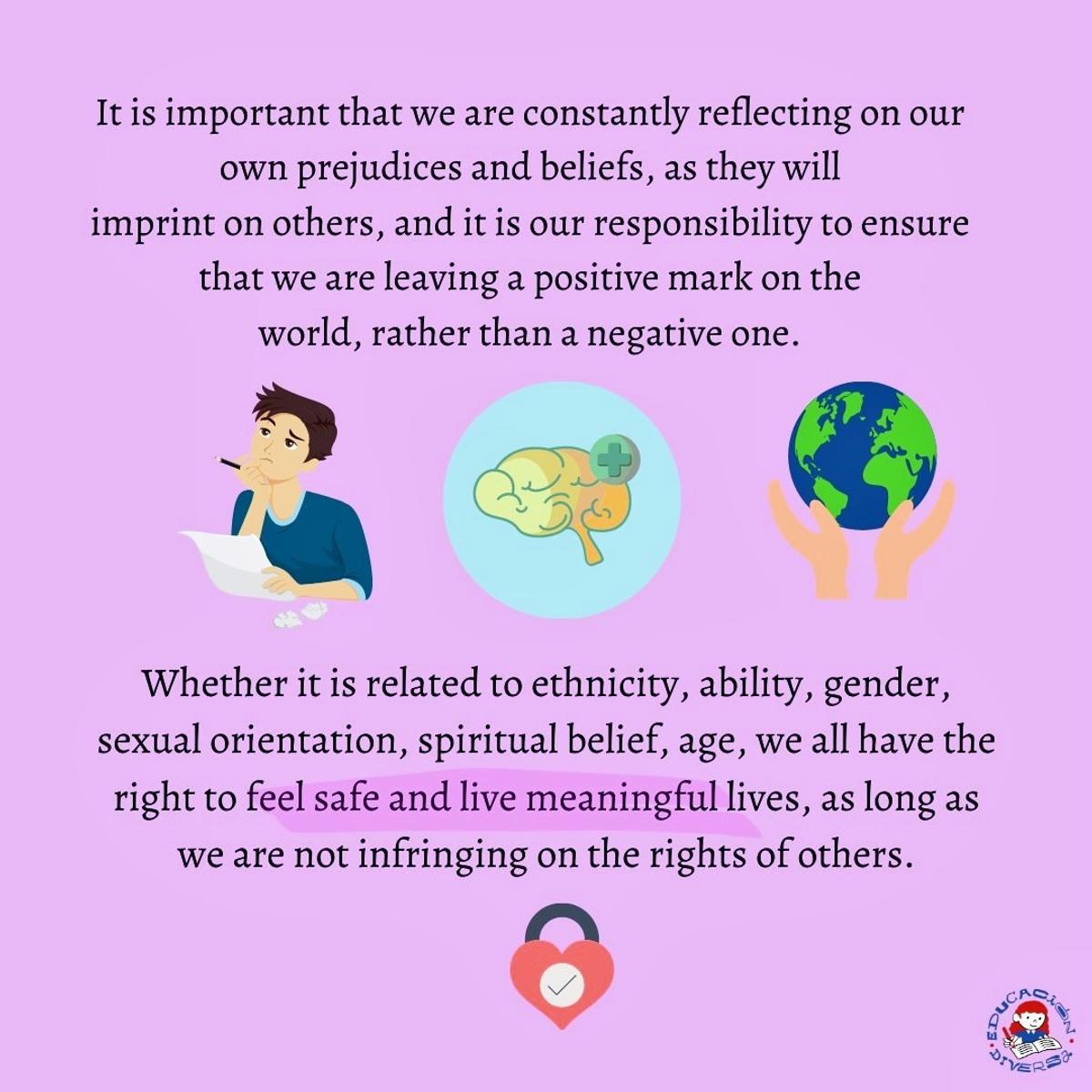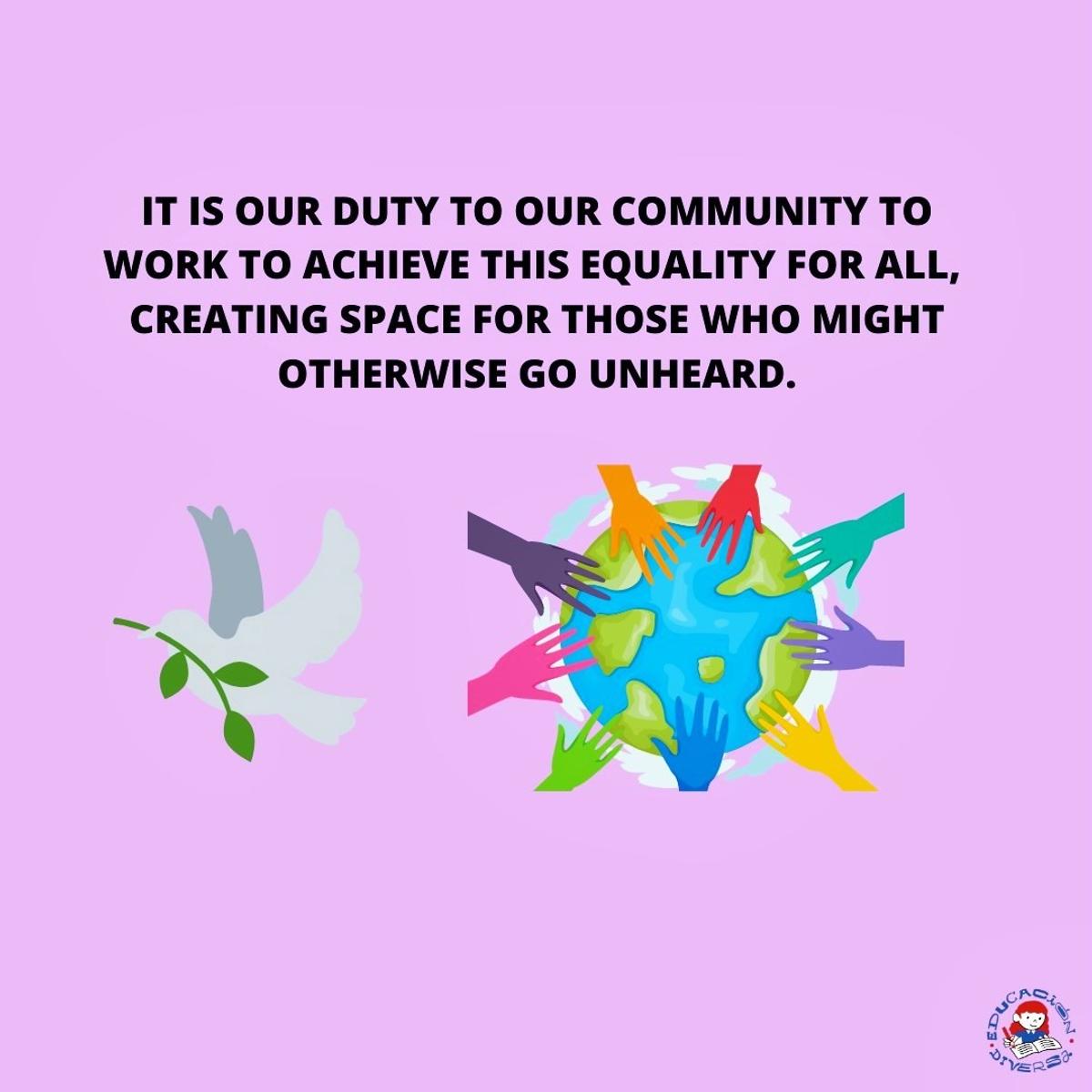Zero Discrimination Day
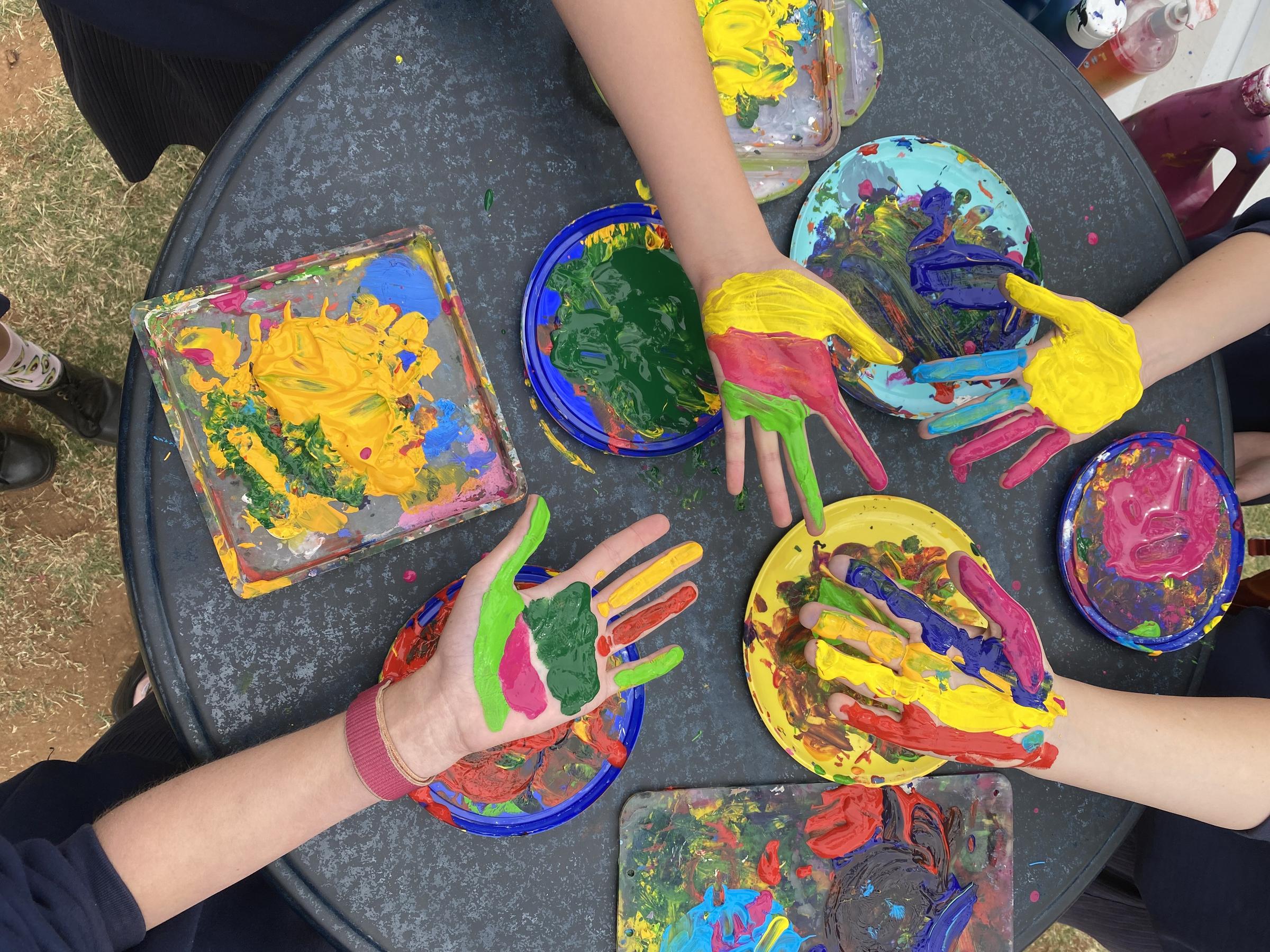
Zero Discrimination Day (11/3) is a significant annual event, hosted by the United Nations, which intends to vote in great legislation designed to support and empower different sectors of our society, however, that does not mean that it always addresses the underlying problems in real life. This disconnect is something that must be resolved to better the lives of people, but also highlights the importance of different groups of people across society working together to overcome challenges such as discrimination.
Discrimination results from our attitudes, whether we are aware of them or not. Attitudes are our beliefs or opinions towards objects, peoples or events etc. These can be positive or negative, and very strong or quite neutral. Attitudes can affect our behaviour, and we often determine the attitudes of others by watching their body language, reading their emotions or hearing what they say. However, our behaviour can also start to shape our attitudes, with any discord between the two resulting in internal conflict and tension. This tension is known in Psychology circles as Cognitive dissonance and can lead people to behave in new and defensive ways, especially when their attitudes are challenged by others. This is something that I have been exploring with my Year 12 Psychology class. Growing up in a social world, our young people are constantly learning about how to behave and navigate the world, based on the way that the people around them act. Whether we notice it or not, children adopt our attitudes and behaviours, which can be for better or for worse.
It is important that we are constantly reflecting on our own prejudices and beliefs, as they will imprint on others, and it is our responsibility to ensure that we are leaving a positive mark on the world, rather than a negative one. Whether it is related to ethnicity, ability, gender, sexual orientation, spiritual belief, age, we all have the right to feel safe and live meaningful lives, as long as we are not infringing on the rights of others. It is our duty to our community to work to achieve this equality for all, creating space for those who might otherwise go unheard. We must take our role modelling seriously and seek to help shape our young people to be tolerant and compassionate. Sometimes this requires following their lead and resolving any cognitive dissonance and prejudice in our own attitudes. This is not always easy, but it is necessary to ensure that we are building a future with Zero Discrimination. Young people are born accepting differences and are taught to be prejudiced, so we should let them guide us, as they are the future and the future is bright.
Blog post originally published by Educacia Diversa (2/3/21)


